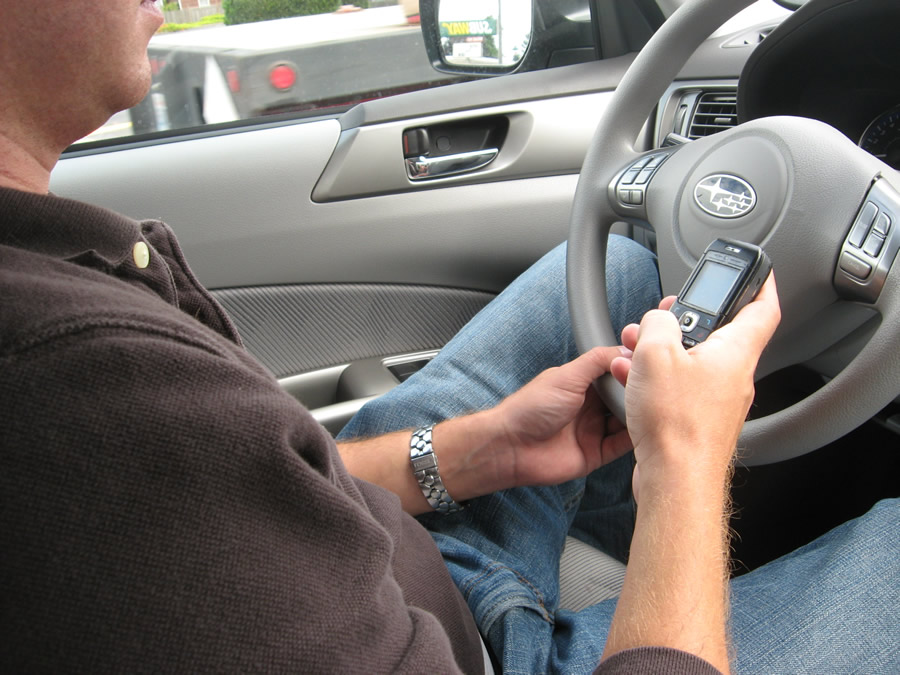
He ain’t got no distractions
Can’t hear those buzzers and bells
Don’t see lights a-flashin’
Plays by sense of smell
Always has a replay
’N’ never tilts at all
That deaf, dumb, and blind kid
Sure plays a mean pinball
In the 1969 rock opera, Tommy, a blind, deaf, and mute boy attains fame and a religious following for his ability to play pinball prodigiously in spite of his sensory deficiencies. Although he is abused and ignored throughout much of his early life, Tommy manages to overcome all that through his seemingly supernatural knack (just as Pete Townsend overcame childhood abuse to become The Who’s guitarist and a writer of Tommy).
The moral of the story is that a determined human being can surmount any obstacles, no matter what they may be. The moral must absolutely not be read as an excuse to attempt complicated tasks without the use of the senses required to execute them. Although Tommy manages to play pinball without sight or hearing, no one should attempt a task like, say, driving without dedicating their mind and senses to it. In fact, the National Safety Council estimates that 28% of all traffic crashes can be traced to cell phone use.
As the data suggests, trying to drive with self-imposed handicaps does not end as well as Tommy ended. Listed below are the senses that are dulled to their surroundings during phone use and how they are needed for driving:
Table of Contents
1. Visual
While texting is the most obvious cause of visual diversion at the wheel, the eyes also dart about naturally during vocal conversation as the speaker recalls details to memory. Even without taking into account the risk of inattention blindness, failure to keep ones eyes trained on the road seriously jeopardizes a driver’s ability to stay within their lane, execute turns properly, and anticipate the maneuvers of other drivers. Texting and driving in particular is to be eschewed, as the average amount of time it removes one’s gaze from the road ahead is 4.6 seconds (a wide window at high speeds).
2. Tactile
While the tactile sense plays only a marginal role in driving, manual multitasking increases the risk of drifting, swerving, and overcorrecting. Whether you are reaching for a dropped pacifier, sending a text message, or even changing the radio station, occupying your mind and hands with another task detracts from the attention being paid to steering the vehicle.
3. Aural
While it is primarily the responsibility of the eyes to detect hazards on the road, the ears are vital in directing the eyes toward possible menaces that come up from blind spots or from behind. Using a hands-free phone or listening to music at a high volume qualifies as distracted driving when it interferes with a driver’s ability to pick up on vital auditory clues like the roar of a motorcycle in the lane next to you or the wail of a siren approaching from the rear.
4. Olfactory
Sensory overload in general can prevent drivers from picking up on subtle clues that something is amiss with their vehicle. If the driver is talking on the phone and trying to steer at the same time, they are less likely to notice when their car smells like oil, gym socks, or an imminent explosion. Failure to take note of unusual smells for long enough allows problems to worsen, making the eventual necessary repairs more costly and even running the risk of an accident in the event of a total malfunction on the road.
5. Cognitive
It is wholly possible, moreover, to be guilty of distracted driving without skinning a moose or texting behind the wheel: hands-free phones are nearly as dangerous as handheld phones. Defensive driving requires more than superficial involvement in the task; it requires a substantial amount of focus. If a conversation cannot wait, the commute should.
The mayhem wrought by distracted driving in the U.S. is almost beyond belief: in 2011, 387,000 were injured and 3, 331 killed in distracted driving accidents. This destructive trend is unlikely to change without some form of legal retribution. For those who have been injured in distracted driving accidents in Utah, Good Guys Injury Law can help stem the tide of irresponsibility and obtain compensation for the victims. For a free consultation, call at (801) 506-0800.
Image courtesy of Jason Weaver